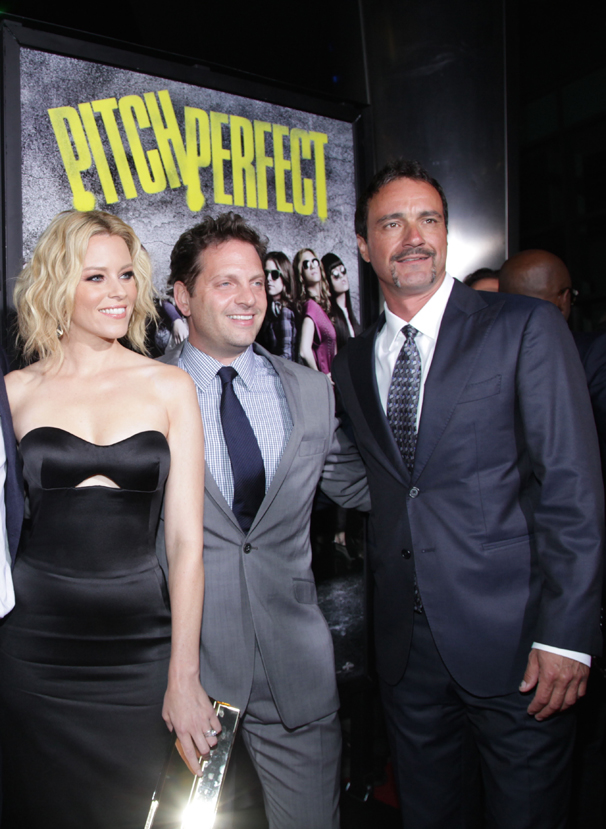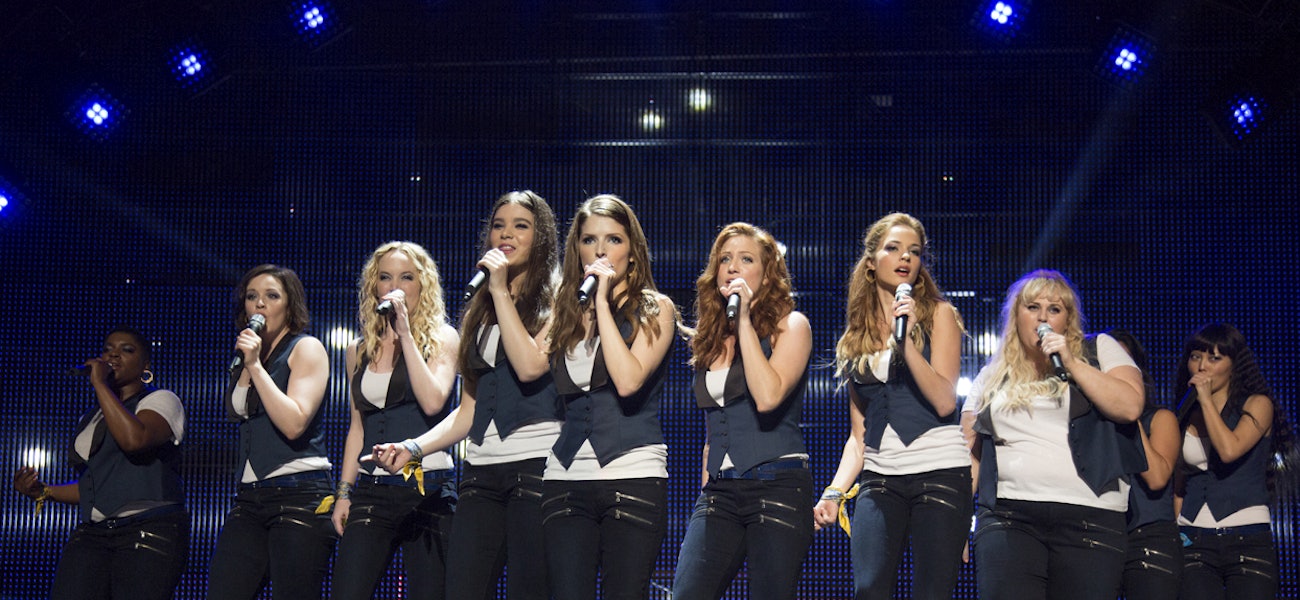Photo courtesy Universal Pictures
“Homecoming” has to be the most fitting description for Scott Niemeyer’s life at this very moment. The New Orleans-native-turned-Hollywood-producer has staked a 27-year career in film—including producing My Big Fat Greek Wedding and overseeing financing and operations for Dumb and Dumber—but his recent career surge has swelled on the success of a comedy shot in the Capital City with LSU standing in as the fictional and a capella-frenzied Barden University.
With 2012’s Pitch Perfect pulling in $65 million at the box office and spawning star Anna Kendrick’s viral “Cups” video (closing in on a staggering 200 million YouTube views), Niemeyer and Baton Rouge have birthed a bona fide hit series and given a boost to the movement of modern female-driven comedy.
With the original cast of the Barden Bellas returning and new director and co-star Elizabeth Banks (The Hunger Games, 40-Year-Old Virgin) aboard, Pitch Perfect 2 is in theaters now.

“The Bellas are riding high on their successes, perhaps a little too high,” Niemeyer says. “And they get challenged by a better-rehearsed group. So [the sequel is] a challenge of both skill and ego. We’ve had a great time with the Bellas’ new nemesis, and playing up the cultural and musical differences that create a certain tension and a dynamic rivalry for this new chapter.”
Through Gold Circle Entertainment, Niemeyer has brought four productions to Baton Rouge in the past four years. He loves working in the city so much he tried fervently to have his other high-profile sequel, the follow-up to Greek Wedding, made in the Red Stick, too. (Toronto, the original’s location, ultimately won out.)
“Scott is such a lovely and supportive producer,” says Pitch Perfect star Rebel Wilson. “He’s on set every day with us, and because he’s home-grown in Louisiana, he knows all about the area.”
While Pitch Perfect has garnered largely rave reviews, Niemeyer’s industry is under fire in the state Legislature, and he says another reason he’s back in Louisiana is to fight off critics of the film incentives programs.
“I’m putting myself front and center [of the fight],” Niemeyer says. “The credits are the source of the current robust form of the industry. Their absence would be devastating for this level of production and economic activity.”
On top of speaking with lawmakers, Niemeyer has just launched CreateLouisiana, a marketing and social media campaign to aim a giant spotlight on the creative capital that he believes is too often overlooked in the Bayou State.
“From social media and website communication to videos and grant initiatives, CreateLouisiana will tell the stories of the people and talents that fuel our local creative economy,” says Sian McArthur, co-founder of Create Louisiana.
Niemeyer aims to expand the breadth of his own industry in Louisiana with Deep South Studios, his planned $63.5 million movie studio on a 19-acre campus in Algiers, across the Mississippi River from New Orleans. In January the state approved the project for tax breaks worth at least $3.1 million. This time next year, Niemeyer wants to open the facility and book his first major film to be shot on a brand new back lot and soundstages. The construction, which has yet to start, will take 18 months, he says.
“It’ll be a digital campus that allows for the creation of all kinds of media and complete post-production for movies and television as well as a home for the education and training of the state’s indigenous crew base.”
Though legislators and the public continue to debate the value of the state’s film incentives, the Tulane business school graduate knows that every aspect of Hollywood moviemaking is a game of risk and reward. And with Deep South Studios, he loves his chances. deepsouthstudios.com
Read an interview with star Rebel Wilson here.
Read an interview with star Hana Mae Lee here.
Editor’s note: This article has been updated since its original posting.








